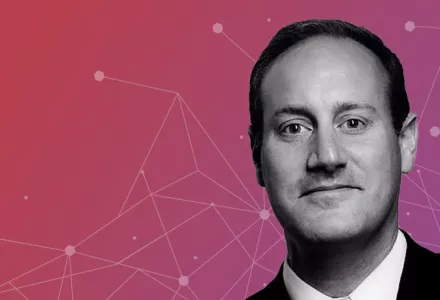Speaker
Peter Romer-Friedman is a principal at Gupta Wessler PLLC, where he heads the firm’s Civil Rights and Class Actions Practice. He maintains a dynamic and innovative civil rights docket in trial-level courts with an emphasis on employment discrimination and benefits, fair housing, credit discrimination, and constitutional rights. His civil rights cases often arise at the cutting edge of the law and technology and focus on solving both entrenched and emerging problems with novel approaches.
Over the past decade, Peter has obtained over $1.4 billion in relief and systemic reforms by major corporations and governments, and he has secured some of the largest and most novel settlements under a range of federal laws. Recently, he launched dozens of actions to stop digital technologies and algorithmic bias from trampling the civil rights of millions of Americans and stifling their economic opportunity. Peter’s varied clients have included workers from many industries, national labor unions, fair housing groups, national veterans’ organizations, public officials and staffers of both major political parties, whistleblowers, consumers, small businesses, and a bankruptcy trustee. He represents his clients in whatever forum will vindicate their civil rights—from trial courts, to administrative agencies, to the halls of Congress and the media.
Peter was a law clerk to Judge Stephen Reinhardt of the U.S. Court of Appeals for the Ninth Circuit and labor counsel to the U.S. Senate Labor Committee and its Chairman, Senator Edward M. Kennedy. He has also taught civil rights law as an Adjunct Professor at Georgetown Law. Before joining Gupta Wessler, he was a partner at one of the nation’s largest workers’ rights firms, the Deputy Director of Litigation of the Washington Lawyers’ Committee for Civil Rights and Urban Affairs, and a civil rights associate at a national class-action firm.
Peter graduated from Columbia Law School, where he was a James Kent Scholar and Harlan Fiske Stone Scholar, and externed with Judge Shira Sheindlin of the U.S. District Court for the Southern District of New York. He earned his B.A. in economics with honors from the University of Michigan at Ann Arbor, and he was selected as a Truman Scholar by the Harry S. Truman Scholarship Foundation. Before law school, he was a legislative representative and union organizer for the United Steelworkers and co-founded the Worker Rights Consortium, a non-profit that monitors labor rights in apparel factories worldwide. He has worked or volunteered for other progressive unions, political campaigns, and organizations including the Communications Workers of America, AFL-CIO, SEIU, UNITE HERE!, the 2008 Obama Presidential Campaign, and United Students Against Sweatshops.
Peter’s groundbreaking cases have advanced equal rights, opportunity, and dignity for diverse communities, including by:
- Brokering the first major settlement over digital bias in which Facebook agreed stop advertisers from steering job, housing, and credit ads away from people based on race, age, and gender, and winning an EEOC ruling that the same practices violate Title VII and the ADEA.
- Recovering approximately $80 million dollars for military reservists and veterans who were denied jobs, pay, retirement contributions, and other employee benefits by employers such as Walmart, Federal Express, U.S. Postal Service, Southwest Airlines, Washington State, L3 Technologies, United Airlines, American Airlines, and the U.S House of Representatives.
- Negotiating one of the largest reported workplace bias settlements with the U.S. House of Representatives in a case against the Benghazi Committee.
- Winning the first class-action settlement for a group of LGBTQ workers, Walmart employees denied health benefits for their same-sex spouses.
- Curbing racial discrimination in the largest federal housing recovery program on behalf of Black families displaced by Hurricane Katrina and securing hundreds of millions of dollars of recovery relief for them.
- Obtaining a $760 million settlement for thousands of Native American farmers denied USDA loans for decades in one of the largest credit bias settlements in U.S. history.




